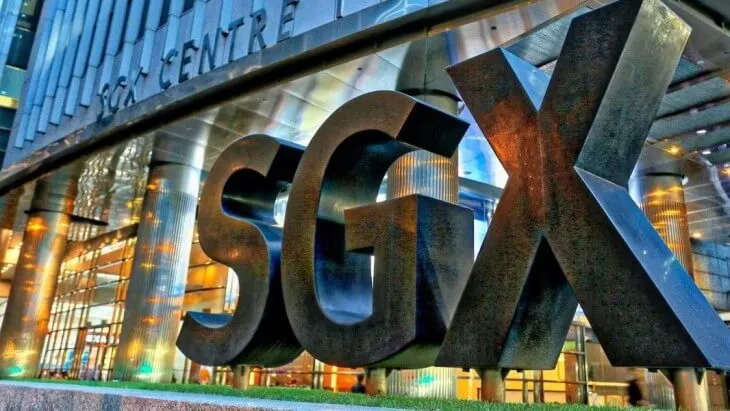Why are there more McDonald’s than Michelin restaurants even though they don’t serve the best tasting food?
Isn’t skill the most important thing that differentiates the “winners” from the rest?
How can mediocre food like Macs beat Michelin? Because we don’t always want the best food.
As Peter Perell explained in his excellent marketing article,
“We don’t go to McDonald’s for the world’s best meal. We go because McDonald’s is always “pretty good.” They don’t just sell food. They sell cleanliness, safety, and reliability. Even in the worst parts of town, McDonald’s is safe.”
Sometimes what you think is the best isn’t the best.
If you’re so smart, why aren’t you rich?
Life does not always work in a straight line, but our thinking does.
When we see or hear about “successful” people in the media, many of us automatically find some factors to explain their success. In our attempt to make sense of the world, we sometimes forget that success is often messy, and may involve more factors than we account for.
Many people assume that doing well at school or having a high IQ leads to a high income in the future. The better you are, the more materially successful you become. Yet, studies find that while the very richest tend to be smart, they are not the very smartest. A study of CEOs of large Swedish companies found that on average they ranked at the 83rd percentile of measured IQ and for CEOs of smaller companies, the rank was the 66th percentile.
Similarly, the very smart tend to do well, but are less likely to achieve extreme success. This was demonstrated in the well-known psychology study by Lewis Terman, that tracked children whose IQs averaged 140, also known as Termites. Researchers found that by the time Termites reached adulthood, although some had become successful, most had good, but not outstanding careers, while others were stuck in fairly average jobs.
Ironically, two individuals who actually did go on to become Nobel Prize winners were excluded from Terman’s experiment because of their relatively low IQs.
In other words, being smart doesn’t mean you will be rich or successful and vice versa.
But what about those of us who are neither smart nor rich?
Being average feels scary
Our culture celebrates exceptionalism.
Being “merely average”, whether it’s a C grade in exams or other kinds of performance evaluation make us question our self-worth.
Like the darkness that brings out the brilliance of the stars at night, being average means being part of the background mass whose existence only serves to highlight the exceptionalism of the genius.
Top performers are not excluded too. For they too, fear slipping from their perch and becoming merely average. Life becomes an endless rat race for more.
But who exactly is average?
The Average Doesn’t Exist
In his book, The End of Average, Todd Rose also argues that no individual can be accurately labelled as average and shares the following research.
In 1950, United States Air Force collected data from more than 4,000 pilots on 140 dimensions of size such as height, chest circumference and sleeve length.
The researchers then calculated the averages for 10 physical dimensions and defined someone as average if their measurements were within the middle 30 per cent of the range of values for each dimension.
Can you guess how many pilots were average? Bear in mind, these pilots have already been pre-selected because they were of average built.
Zero.
Out of 4,063 pilots, no one falls within the average range on all 10 dimensions. Someone with the average leg-length may have a longer arm-length. Or someone with a larger chest-length would have a smaller hip. And even if you reduce the number of dimensions from 10 to 3, less than 3.5 per cent of pilots would be average sized on all three dimensions.
Simply put, no one is quite average when you start looking at all the attributes that make up a human being.
Outliers Are Average
The exceptional is also more average than you might expect.
To understand why, consider this. (If you are interested in a more statistical explanation, check out Why The Tails Come Apart by Thrasymachus)
Extremes are rare in nature (if not they would be averages instead).
This is why there are fewer people with above average height and even fewer people over 2 metres tall. To be exceptional in another attribute will be to select from an already small pool of people, an even smaller number (example 1% x 1% = 0.01%). As the number of attributes increase, the likelihood of finding someone having many extreme attributes decrease exponentially in a population.
Hence, the more extreme you are in one aspect, the likely you are going to be normal in another.
And we see this playing out in sports too.
Tyler Cowen, in his article on “You Don’t Have to Be Smart to Get Rich” also noted that LeBron James is neither the fastest man, nor the best shooter, defender or rebounder. Yet, he is undeniably one of the greatest of all time basketball player in league history.
Similarly, Roger Federer, perhaps one of the greatest tennis player of our time is ranked 50 when you look at the players serving the fastest serves ever recorded.
Exceptional performance is often a complex interplay of different skills, not being exceptional in a single skill.
We Contain Multitudes
The world is messy and our minds tend to oversimplify complex outcomes with simple rules of thumb.
It often works well but over fixating on one aspect often lead us to miss out on the opportunities in other areas.
There’s a quote attributed to Mark Twain that I absolutely love: “It ain’t what you don’t know that gets you into trouble. It’s what you know for sure that just ain’t so.”
Rather than focusing on one single performance indicator, it is the unique synthesis of our different attributes that will help us to become different amidst competition and our own path to success.




